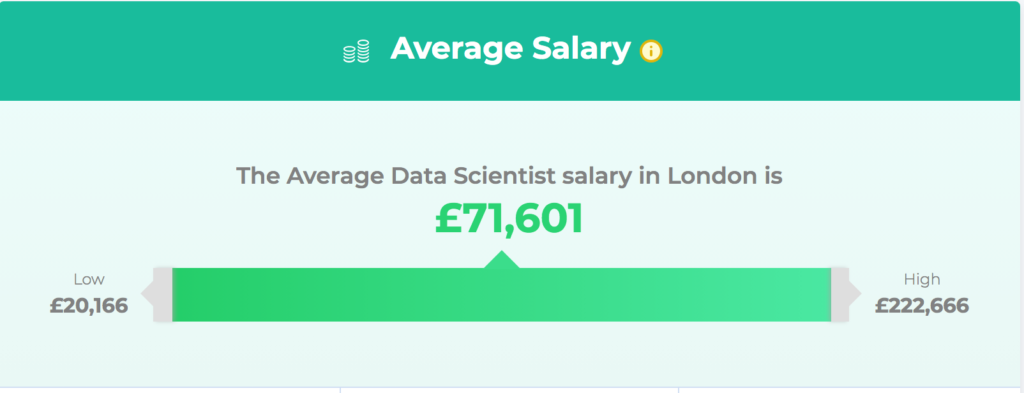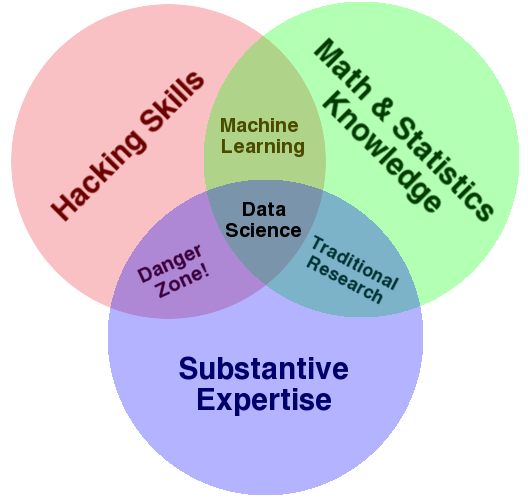How can I become a data scientist?
This is a question I have been asked many times in different forms:
- I have no knowledge in coding, can I become a data scientist?
- I did some statistics in my undergrad, can I become a data scientist?
- Does a data scientist need to know X (where X can be Python/R or something else)?
The challenge with data science is that it is not a well defined field. As I have explained in the past, data science is an umbrella term that has brought together many different fields and disciplines. This can often make the landscape confusing for those who want to join this thriving industry.
This confusion is pretty bad, given that being a data scientist is still one of the best jobs out there. The average salary in a place like London can be at £50k or more. Plus, the job usually offers many benefits, like flexible working hours and working from home. That’s not to mention the fact that you might end up working for some really big names like Amazon or Uber.

So, how can someone become a data scientist?
So, in order to become data scientist, you need to possess at least some core skills:
- Know some basic Python, and ideally R.
- Understand the basics of machine learning.
- Understand the basics of statistics.
Depending on whom you ask, you might hear some different answers, as well, like that you need to know deep learning, or NLP, or databases, etc. All these are true, but fundamentally, if you possess the three basic skills outlined above, then you can start building all the rest.
Note that in order to learn the three points outlined above, you don’t need a PhD in computer science. A PhD or an MSc in a technical field will obviously help, but it is no longer a necessity. There are other more efficient ways (in terms of time and money) to acquire these skills and start a career in data science.
But I have no background in math/engineering. Can I still become a data scientist?
Something, which I have also been asked many times in the past, is the question above. Believe it or not, I think that in many cases, those who do not have a background in data science, might actually end up being far more valuable data scientists. This might sound like a paradox, but why is that?
Take a look at the graph below.

As you can see, one of the core components of data science is “substantive expertise”. This is also called “domain knowledge”. This is one of the most valuable things a data scientist can possess. Understanding the problems and challenges in an industry can be far more valuable than knowing about complicated methods and techniques.
I recently heard a story from a contact of mine, about a bank in Netherlands, that decided to build a data science team. After a few months they fired everyone. While all the people in the team had PhDs, the CEO said that they were all incapable of delivering value to the business, because they had zero understanding of the world of finance.
So, sometimes, coming from a non-technical background can actually be an advantage.
The best way to become a data scientist

I have been in data science education for a long time, and I know what works and what doesn’t. That’s why I decided to create Beyond Machine, in order to help with this challenge.
- It covers all the basics of data science: machine learning, statistics, Python and R.
- It provides specialised knowledge on important topics like deep learning.
- It gives you 24/7 mentoring support.
- It is very flexible, created to work around your commitments.
If you are interested to know more, make sure to visit the Beyond Machine‘s webpage. Also, get in touch if you are interested in a discount. You might also want to read another one of my articles which also includes a useful quiz: What is the best way to become a data scientist?

